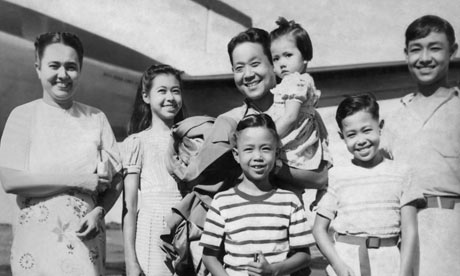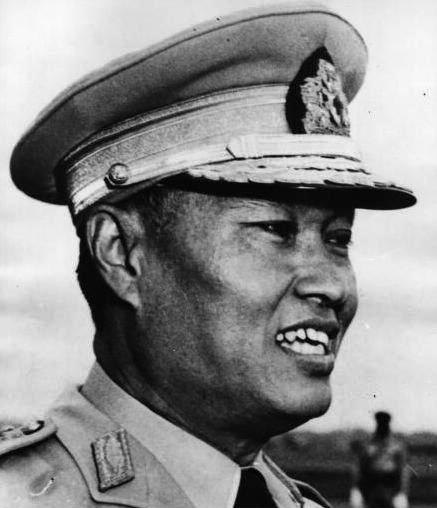It’s hard to get a handle on Burma. When Aung San Suu Kyi was recently here in London, feted on every hand, she was asked about the persecution of the Rohingya, the Burmese Muslims. She replied, “I’m not sure they’re Burmese.” The Dalai Lama, who has declared that Burma’s Buddhist monks must stop beating up Muslims, was here at the same time and wished to meet her. She agreed, but only if there was no publicity. She had been advised about this by the office of Prime Minister David Cameron, who had earlier been denied contact with Beijing for having met with the Dalai Lama for forty minutes. I know about the meeting with Aung San Suu Kyi only because the Dalai Lama told me during his London visit.
Suu Kyi was interviewed for the long-running BBC program Desert Island Discs, during which she said, “I love the army”—the same army that had enforced her house arrest in Rangoon on and off for years. She now sits in Burma’s parliament with the generals who led that army. In the interview she also spoke of her father, General Aung San, as the founder of Burma’s Liberation Army, without mentioning that he had collaborated with the Japanese.
In Golden Parasol, her memoir of Burma during the years in which the country went from a British colony to a military dictatorship, Wendy Law-Yone suggests why the country’s ruling class may be so difficult to understand. Law-Yone makes plain that she, like Aung San Suu Kyi, is a member of a top Burmese family. A resident of London for many years, Law-Yone has returned to Rangoon twice, very briefly, after Aung San Suu Kyi’s release in 2010. She made no effort to see Suu Kyi and mentions her exactly three times in passing, noticing Suu Kyi’s picture on key chains and in recent photographs with Hilary Clinton.
The central figure in Law-Yone’s memoir is her father, Edward Michael Law-Yone (1911–1980), the courageous and independent editor of The Nation, Burma’s most important English-language newspaper from the late 1940s to the early 1960s. No one else felt it was safe to write and publish what he did. Dr. Ba Maw, Burma’s first prime minister, described the pervasive nature of his country’s corruption: “Power means private armies, and guns, and subsidies, and the whole state treasury, and rules and decisions of your own making…and so the great democratic foolery goes round in a circle.” Soon after he established his paper, Ed Law-Yone wrote:
If our corrupt politicians, in spite of being corrupt, were building museums, correcting infant mortality, cleaning Rangoon, or tackling any one of the other thousand things that need to be done, the whole community would be behind them. But since they do none of these things they are merely dissipating energy and getting in the way of those who really do want to do a constructive job.
Speaking in such general terms was acceptable, “but when The Nation began leveling corruption charges at senior ministers, using words like ‘thief’ and ‘crook,’ the cabinet as a whole decided it was time the arrogant editor’s guns were spiked.” He was subjected to a three-month trial for defamation and criminal libel. (Law-Yone gives no date for this trial.) He was ordered to pay damages and sentenced to a month in prison. On appeal the fine was reduced to next to nothing and the jail sentence struck out. Ed Law-Yone was on bantering terms with General Ne Win, who would go on to be one of Burma’s brutal military rulers (1962–1981); he was a frequent guest at Ne Win’s house and very friendly with the general’s wife, Katie. After seizing power in 1962, however, Ne Win closed the newspaper and put Law-Yone in jail. Ms. Law-Yone initially accounts for this by relating that the general’s rackety wife confided in Ed that she had “acquired a lover.” When Ne Win discovered that Ed knew about this scandal, Law-Yone contends, the general imprisoned him for five years.
I doubt this was why her father was locked up, and perhaps Law-Yone’s imputation is as light-hearted as the language she prefers. She recently told a BBC interviewer that her way of dealing with a sad story is to “make people laugh.” I believe that General Ne Win imprisoned Law-Yone’s father not because he knew too much about the general’s wife but because he stood for the democratic values that Ne Win opposed. And yet Ed spoke well of “the man who had robbed him of his newspaper, his profession, his rightful home”:
I certainly do not know all that can be known of Ne Win, but I know sufficiently about the state of his mind to absolve him of whatever harm he has done to me and my own. What the rest of my countrymen feel about Ne Win, especially those who have suffered more severely and more unjustly at his hands, is something they themselves will have to put into expression when the time comes.
One might say that this is an expression of Buddhist forgiveness, but it is less than that. It’s an inability to weigh up even political reality other than as personal.
Advertisement
General Aung San who, as Law-Yone writes, “supported” the Japanese during the war, switched sides only when it was clear that the Japanese would lose. The general was rewarded for this just-in-time conversion with British withdrawal from Burma in 1948, which left behind a jumble of military despots and crooks—along with democrats like Edward Law-Yone. Wendy Law-Yone has written to me recently that what Aung San did was not collaboration, but was “in the interests of the Burmese people.” (This was the usual explanation, from Petain in France to Wang Jingwei in China.)
“From my father,” writes Law-Yone, “I inherited anger, from my mother, repression.” The anger is invisible in her book. What she really got from her father was her relentlessly jokey narrative style:
As children we had all learned that the only way to our father’s ear was through an entertaining anecdote or performance. So I told him only about the comic aspects of my time in jail—not about the nightly interrogations.
Her father’s account of his own five years in prison, she writes, was “offhand.”
Law-Yone writes over-long accounts of her father’s messy eating habits, of the family cook, who would “flounder about the kitchen, managing in his agitation to grab neither his head nor his arse, as the saying went,” and, in detail, how her schoolmates wiped their noses. But there is a moving chapter in which she describes how in 1965, when she was eighteen, she met for twenty minutes at a concert her American first husband-to-be, Sterling Seagrave, the son of the famous “Burma surgeon” and missionary Gordon Seagrave. She describes their long epistolary romance, her attempt to escape from Burma to meet him, her arrest by the secret police who were suspicious of her reasons for leaving the country, her brief but painful jailing, and the couple’s eventual reunion. (Later in the book she barely mentions that they divorced and he kept their children, and that she became engaged again and finally married her present British husband.)
Law-Yone, too, sees Burmese politics—occasional assassinations, detentions, even rebellions—largely in familial terms. I’m sure she knows they were far bigger than that, as she shows by returning repeatedly to the courage of her father and Burmans like him, who sacrificed themselves for liberty and clean government. In Burma, she appears to have learned from her heroic father, dissidents cloaked their rage, fear, and—ultimately—helplessness with mordant laughter. During their life in Rangoon, that was apparently the only way to survive.
Golden Parasol: A Daughter’s Memoir of Burma by Wendy Law-Yone is published in the UK by Chatto and Windus.




